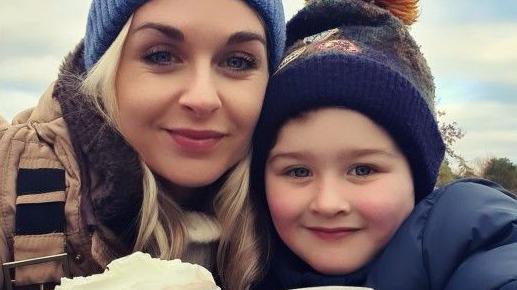Campaigners call for more brain cancer research
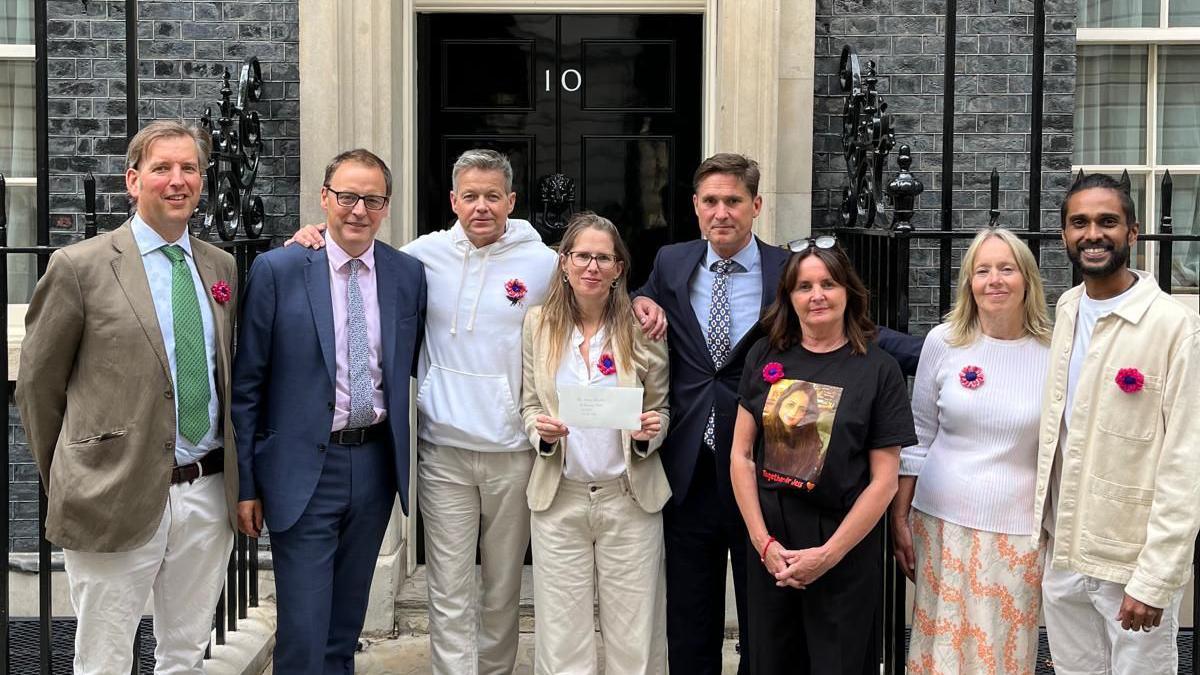
Georgie Maynard (middle with glasses) handed in a petition at Downing Street calling for more funding
- Published
A mother of five who was diagnosed with an aggressive brain tumour two years ago has taken her campaign for more research funding to Westminster.
Georgie Maynard, from Bessels Leigh in Oxfordshire, protested alongside other cancer patients and supporters of her Brain Cancer Justice group, calling for the government to honour a previous pledge, external to spend £40m on brain cancer research.
Brain tumours are the biggest killer in children and the under 40s, yet only 1% of cancer research funding is spent on them.
The Department of Health and Social Care said it was backing brain cancer research to find out "how we prevent, detect, manage and treat cancers for people of all ages".
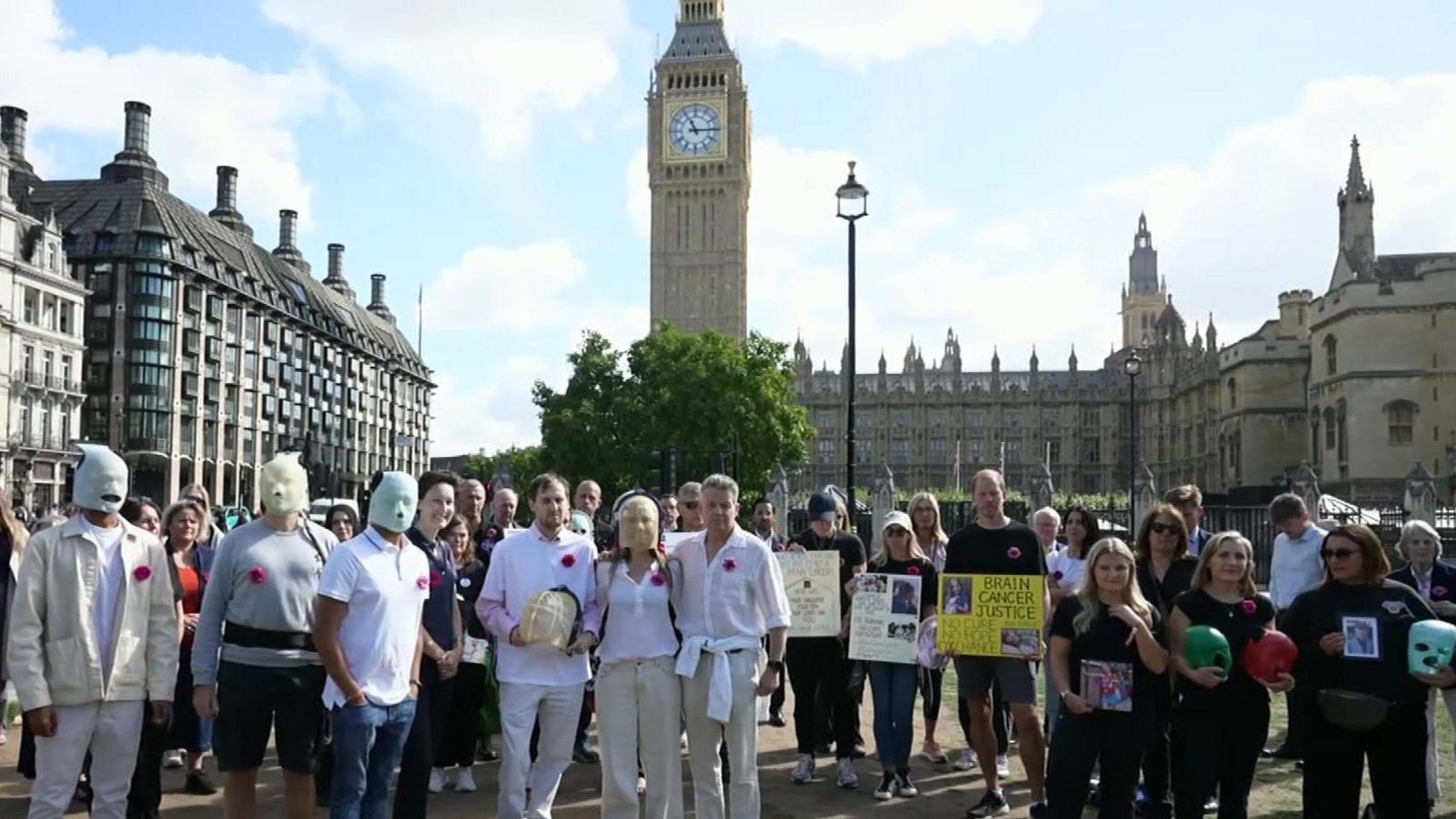
Mrs Maynard said a lot of people were "deeply frustrated" over the shortage of research and lack of funding for the disease
Mrs Maynard said the group had been set up after she had attended an all-party parliamentary group, where she had heard stories from people with brain cancer or those who had lost loved ones to the disease.
She said in 2015/2016, 120,000 people signed a petition and the government at the time "was very supportive" of it.
"But has that change happened? No, and the funding hasn't materialised yet," she said.
"There are a lot of people who are deeply frustrated."
Mrs Maynard was diagnosed with glioblastoma – one of the hardest brain tumours to treat. The survival rate remains stubbornly low and the standard treatment in the UK has not changed in decades.
Much of that is due to a lack of research, which Mrs Maynard and her brother, Witney MP Charlie Maynard, are trying to change.
She has been to see research at the Centre for Medicines Discovery at Oxford University. and said she was "hopeful" there would be some significant new treatments in the next five years.
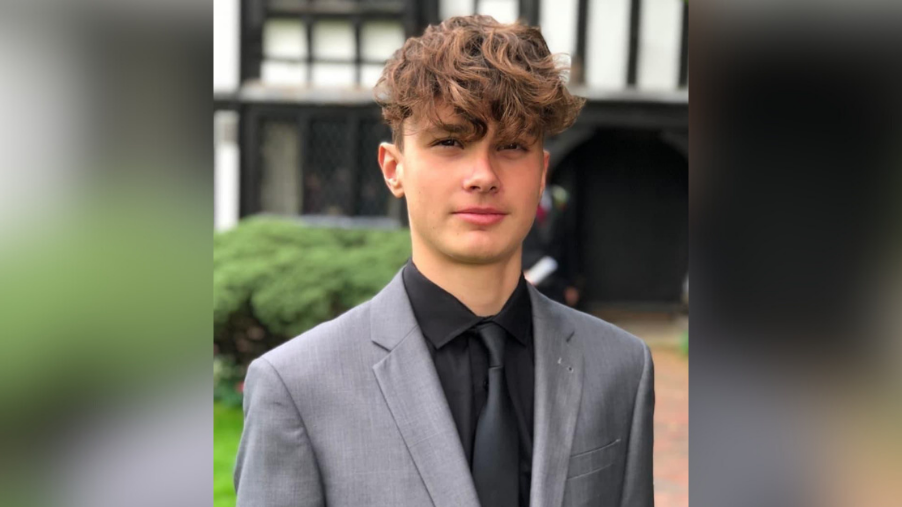
Nikki Treharne, who lost her 17-year-old son Ethan to a brain tumour in 2021, said people with the disease should be able to "have better treatment options" in the UK
Among the campaigners who handed in a 10,000-signature petition was Nikki Treharne from Sandhurst, Berkshire, who lost her 17-year-old son Ethan to the disease in 2021.
"A lot of the treatment that we did for Ethan we had to pay for privately [and] take him to Germany and we want to stop that for future generations," she said.
"For people that are facing this diagnosis they should be able to stay in the UK and have better treatment options."
A Department of Health and Social Care spokesperson said they knew that "innovative research is vital" in the fight against the disease.
They added: "We are backing brain cancer research with the National Institute for Health and Care Research's new national Brain Tumour Research Consortium, which will bring together top researchers from across the top institutions to research how we prevent, detect, manage and treat cancers for people of all ages."
Get in touch
Do you have a story BBC Oxfordshire should cover?
You can follow BBC Oxfordshire on Facebook, external, X, external, or Instagram, external.
Related topics
Similar stories
- Published6 September
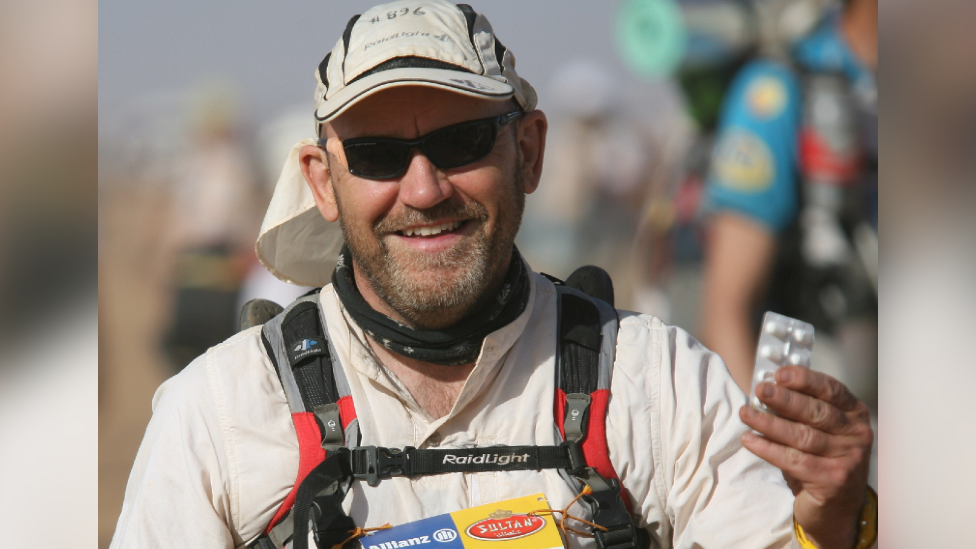
- Published24 March
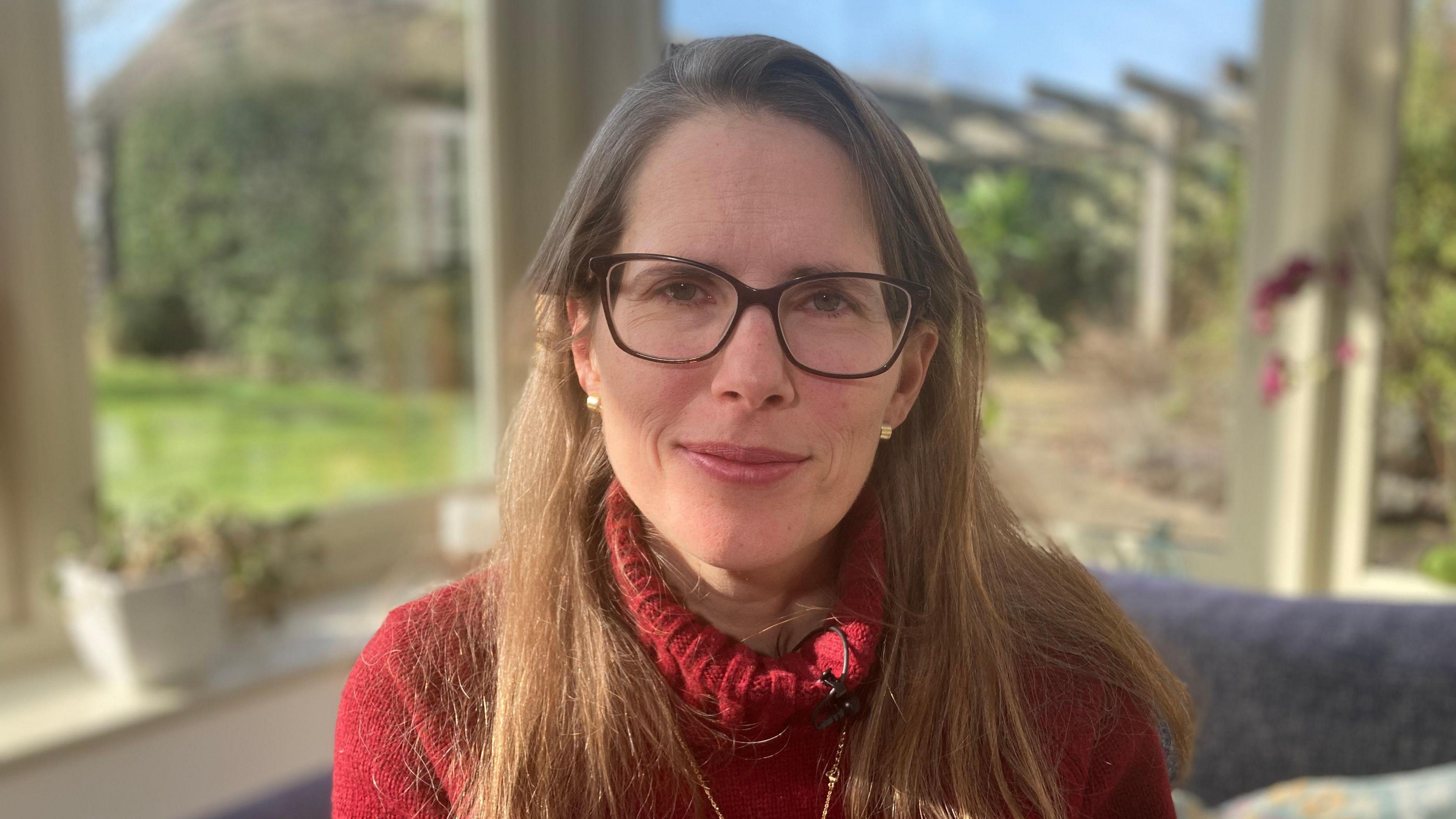
- Published18 May
